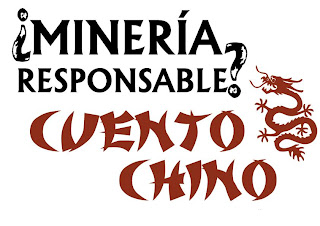The most repeated discourse today by mining multinationals and the governments that sponsor them is undoubtedly that today the activity is no longer more polluting but rather more socially and environmentally "responsible" in its operations, even trying to make people believe that the final result of the water used after the treatments that the companies would carry out will be better than before starting their operations.
However, recent experiences in Peru, Argentina and other countries, where the serious impacts of mining on human health and nature have become evident over time, show the other side of the coin.
This understanding motivated at least 30 activists to break into the opening ceremony of the VI Expominas Fair at the Quito Exhibition Center in Ecuador (a country whose government intends to open the way to open-pit mega-mining in highly sensitive areas) a few days ago, singing an adaptation of the famous song “Latinoamérica” by Calle 13.
To the surprise of hundreds of mining entrepreneurs, the activists, mostly women, stopped the opening speech.
“You can't buy Intag, You can't buy Mirador, You can't buy Kimsacocha, You can't buy my Ecuador” were the chants of the activists who wore t-shirts with the slogan: “Responsible Mining, Chinese Tale.”
Business people, curious people, journalists, models hired by companies, guests and representatives of the different State portfolios listened in bewilderment.
After the activists left, the organizers tried to downplay the incident, but those present in the room could not stop talking about it.
One of the activists who came from one of the potentially affected communities said, “At the exhibits, a Kinross representative acknowledged that they were going to affect our water.”
With a creative, sudden and rapid action, the protesters showed their disagreement with the expansion of mining in the country and with the signing of the "Mirador" copper mining project in the Cordillera del Cóndor, with the Chinese company ECSA, as well as their rejection of the fallacy of sustainable mining.
“Despite all the attempts by the government to include Ecuador on the international mining map, the reality is that the country has gone into debt, local conflict has increased and no one believes the story of responsible mining,” concluded one of the improvised singers.
![]()

